The content of the article
Once again did you have a sip of hot coffee or a cold cocktail, and sharp pain pierced your teeth, which is impossible to get rid of? That's right, you have increased tooth sensitivity. This is due to the fact that the dentinal tubules are open, through which aggressive foods (hot, cold, sweet) go directly to unprotected nerves. Irritation of the bare nerves causes such sharp and unpleasant pain. In this article, we will talk about why teeth become sensitive, and talk about the basic professional and home ways to cope with a problem.
What is tooth hypertension
Hypertension is a high sensitivity of tooth tissues to various external stimuli. Irritants can be completely different. Most often, a person reacts to temperature changes - the teeth hurt from hot and cold drinks. At later stages of the development of the disease, the patient may experience pain when inhaling cold air, which creates real problems with talking and breathing outdoors in the winter. With hypertension, the teeth also respond to mechanical stress - pain is felt when brushing your teeth, even if you use a brush with soft bristles. Teeth begin to hurt when exposed to hard foods.
Tooth sensitivity is also manifested when exposed to products with a sharp taste. Sweet, sour, salty, spicy can bring, albeit short-term, but quite severe pain. It becomes difficult for a person to bite fruit with his front teeth, this brings discomfort. It can be noted that such patients prefer to cut fruits into small slices and only then eat them.
The main cause of pain is thinning and damage to tooth enamel. The tooth tissue (dentin) has a lot of nerve tubules in its body through which nutrition and neurological impulses pass. Due to this, the tooth is considered to be “alive”. On top of the dentin is a protective film - enamel. Tooth enamel is very hard, because she has to protect the tooth around the clock. But the wrong way of life of a person leads to the fact that even the hardest part of the human body (enamel) is destroyed. The nerve tubules remain unprotected - they also respond to various external stimuli. Very often, hypertension is confused with pulpitis (inflammation of the nerve). You must know how to distinguish these dental pathologies. With pulpitis, a tooth can begin to hurt suddenly - even at night. Such pain can last quite a long time - up to several minutes. But with hypertension, pain occurs only after exposure to irritants and usually disappears after a few seconds.
Why teeth become sensitive
As noted, increased tooth sensitivity develops due to thinning and damage to tooth enamel. But why is tooth enamel damaged? What can contribute to its destruction?
- Tooth enamel can be corroded by various food acids. If you often drink citrus juices, drink soda and eat dishes with a lot of vinegar, it slowly destroys your enamel.
- Very often, enamel is destroyed due to the uncontrolled use of whitening pastes or home remedies for lightening teeth. Whitening pastes with abrasive particles cannot be used constantly, at most 3-4 times a month.With regular use, tooth enamel is scratched, destroyed, becomes damaged. This also includes home whitening with baking soda, activated carbon, etc. To get only the benefit from whitening, you need to do it right and not so often.
- The sensitivity of the teeth can occur after grinding the teeth, when the tooth enamel is washed and teeth are prepared under the crowns. This manifestation can be considered temporary.
- Enamel erosion is a dental disease in which tooth enamel is affected.
- Caries is another cause of tooth sensitivity. However, teeth can respond to external stimuli, even if there is no black cavity in the tooth tissue. The fact is that hypersensitivity and other signs of enamel destruction are the initial stage of caries. If you do not take measures, a carious hole will begin to develop.
- Bruxism is a dental and nervous disease in which a person grinds his teeth in a dream. This rattle leads to mechanical destruction of tooth enamel.
- Very often, increased sensitivity can be observed after dental cleaning. After tartar removal, enamel is more susceptible to external irritants. However, this condition disappears in just a few days.
- Dental whitening involves the use of chemical components that damage the top layer of tooth enamel.
- Injuries and chips of tooth enamel result from bad habits - such as biting strings and ropes, cracking nuts with teeth, etc.
- Very often, increased tooth sensitivity occurs against the background of the development of periodontal disease. Prolonged inflammation of the gums leads to its omission, as a result of which the dental nerve, which reacts to stimuli, is exposed.
- Often, violations in the integrity of tooth enamel occur due to a lack of minerals in the body - calcium, fluorine, phosphorus.
- Tooth enamel is disturbed during pregnancy and lactation, since the lion's share of the necessary minerals goes to the growth and development of the child.
- Enamel can be destroyed due to internal diseases and changes in the body - various viruses and infections, labor in harmful and toxic production, disruption of the endocrine system, gastrointestinal tract diseases, stress, and even oral contraceptives.
It is very important to know the causes of thinning and damage to tooth enamel. They will help you in the future to prevent re-development of events.
How to treat tooth sensitivity
The treatment of hypertension depends on the cause of its development. If the pain is caused by an injury or chipping, the dentist will suggest restoring the integrity of the tooth using composite materials. If hypersensitivity is a consequence of the development of caries, it must be treated. The carious cavity, as a rule, is drilled and filled, after which the hypertension passes. The same thing in other cases - in the treatment of diseases of the endocrine system, gastrointestinal tract, various internal pathologies, the fight against the underlying disease.
With bruxism, a person is recommended to wear a mouth guard at night, which will protect tooth enamel from damage. You also need to undergo neurological treatment. If tooth enamel is destroyed due to the use of hormonal drugs, you should consult your doctor about the selection of similar, but less aggressive drugs. During pregnancy and lactation, you need to take vitamins so that a sufficient amount of the necessary minerals enter the body.
If the enamel is already destroyed and there is no possibility of its natural restoration, the doctor will recommend remineralization of the teeth. This procedure consists in applying a special mineral complex to the tooth surface, which closes the open dentinal tubules and restores the natural structure of tooth enamel. The procedure is painless, although quite lengthy in time.Moreover, to get a good result, you will have to visit the dentist regularly to update the mineralizing layer. After the procedure, you need to abandon the use of acidic, cold, hot and sweet foods to give the mineralized layer a foothold on the surface of the tooth. As a rule, after 5-6 procedures, the sensitivity becomes much less pronounced, and after 10-12 procedures, hypertension is completely cured. The duration of the effect is 8-10 months, depending on the care of the teeth. Further, the course of remineralization procedures can be repeated.
Sensitive gels and toothpastes
If the sensitivity of the teeth is moderate, it is not necessary to go to the dentist, you can try to repair the damaged areas of tooth enamel yourself. To do this, you need to use therapeutic gels and pastes that penetrate the structure of the tooth, close the open tubules. There are several groups of similar hygiene products that have different working mechanisms. Desensitizing pastes contain alkalis that dehydrate the dentinal tubules and reduce their susceptibility to external irritants. Such funds should be used in courses - several times a year. Among them, Oral-B Sensitive Original, Sensodyne-F, Mexidol dent and others can be noted.
In addition, there are medicinal pastes, gels, varnishes and foams that are applied to the teeth and have a therapeutic effect. Depending on the manufacturer and the specific product, the rules of use may be different. Treated pastes can be used twice a day - they not only treat, but also have the usual cleansing effect. Therefore, such a paste can be used instead of the usual. Gels and foams can be used for a long time, that is, put them on your teeth, fix with a mouthpiece and leave overnight. Many products have not only therapeutic, but also a whitening effect. Among the popular tools can be noted Bifluoride, Fluocal, Fluoride, Remodent, Mi Paste Plus, Tooth Mousse. For application to teeth, you can use a 10% solution of calcium gluconate, 10 minutes after application, rinse your mouth with water.
Electrophoresis is often used to treat tooth sensitivity. After applying a special substance to the patient’s teeth, they undergo low-frequency currents to fix the effect of the drug. With a course of treatment, such physiotherapy brings good results.
Folk remedies in the fight against tooth sensitivity
If all professional methods are alien to you, and you want to get rid of piercing pain with improvised means, try using our recipes for traditional medicine.
- Chamomile. Chamomile broth calms, relieves inflammation, disinfects. He is able to quickly relieve pain and reduce tooth sensitivity.
- Warm milk. If you have sharp pain after contact with an irritant, urgently take a little warm cow's milk into your mouth. It will suppress pain instantly.
- Oak bark. The crushed oak bark must be poured with boiling water and cook over low heat. Let it brew for a couple of hours, and then rinse your mouth with warm broth three times a day. The broth not only relieves pain, but also restores tooth enamel, due to the large number of tannins.
- Tea tree oil. Tea tree oil not only closes the dentinal tubules, but also disinfects the oral mucosa and brightens the teeth. Dissolve half a teaspoon of oil in a glass of warm water and rinse your mouth with this compound 3-4 times a day.
- A decoction of burdock. This tool also perfectly affects the teeth, with regular use, sensitivity decreases markedly. Three tablespoons of dry raw materials need to be poured with a liter of boiling water, close the lid, wrap and let it brew. After a couple of hours, the broth will be ready - it should be filtered and rinsed the mouth as often as possible.It is only necessary to rinse your mouth with warm broth, so as not to hurt yourself.
In addition, you need to eat more dairy products that will make up for the lack of calcium and fluoride in the body.
At first glance, increased sensitivity may seem like a minor problem that does not require special treatment. However, it is not. Sometimes the sensitivity can be so high that a person cannot eat, speak, chew normally. Do not start yourself to such an extent, visit the dentist on time, because dental health is one of the main capital of a person.
Video: increased tooth sensitivity


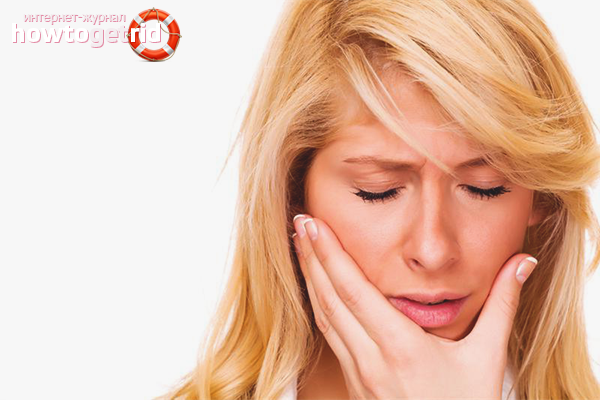

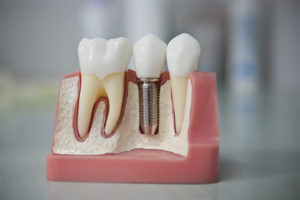



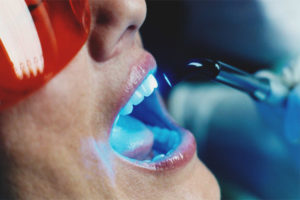
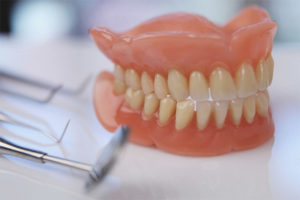

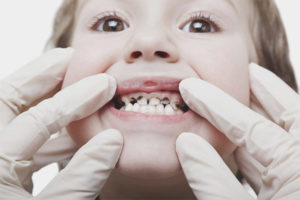
Submit